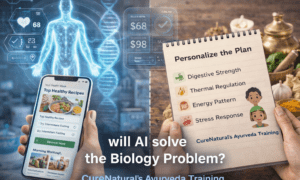The autonomous vehicle sector is rapidly evolving, driven by pioneering innovations that are transforming the landscape of transportation. At the forefront of this revolution are groundbreaking advancements in testing and development, ensuring that autonomous vehicles meet the highest standards of safety, performance, and reliability. These innovations are not just improving the efficiency of testing processes but are also significantly enhancing the accuracy of vehicle behavior predictions, ultimately paving the way for a future where autonomous driving is a seamless and dependable reality.
Pratik Bansal has made significant professional achievements while working in the field of autonomous vehicle testing. He developed extensive test scenarios to rigorously evaluate both hardware and software, ensuring compliance with functional, performance, and safety requirements. He also formulated scenario-based test plans to capture and analyze vehicle behavior, aiding in error resolution. Leveraging his expertise in network protocols like CAN and Ethernet, Pratik effectively debugged errors on test tracks. His contributions extended to sensor calibration and firmware updates, ensuring the reliable functioning of autonomous vehicles. Additionally, Pratik developed and maintained dashboards to streamline the triage process and enhance result traceability. He led the planning and execution of test requests and high-priority vehicle demos, coordinating seamlessly with engineering and operations teams. As a pioneer, Pratik initiated and led a new Integrated Hardware Test team to conduct isolated safety and hardware tests. His mentorship of junior Test Engineers significantly improved their knowledge and test procedures. Furthermore, he developed a triage process automation system using Python and various APIs, which drastically reduced issue resolution time.
Bansal’s impact at his workplace is profound. He enhanced triage process efficiency by 70% through cross-functional collaboration and issue resolution. His implementation of an automated triage process reduced the time required for issue resolution by 150%. Pratik successfully led high-priority vehicle demos from planning to execution, showcasing the advanced capabilities of autonomous vehicles. He also established an Integrated Hardware Test team, which significantly improved isolated safety and hardware tests.
Among his most significant projects, he led the end-to-end execution of high-priority vehicle demonstrations, ensuring seamless operation and showcasing advanced features. He initiated and led a new team to conduct isolated safety and hardware tests, improving overall vehicle reliability. Additionally, he developed an automation system for triage processes, streamlining issue resolution and enhancing operational efficiency.
The impact of his work is underscored by concrete and impressive metrics. He increased triage process efficiency by 70% and reduced issue resolution time by 150% through process automation. His rigorous testing and calibration processes enhanced the accuracy and reliability of autonomous vehicles.
Pratik overcame several major challenges in his field. He successfully tackled complex debugging challenges using CAN and Ethernet protocols, which had not been previously addressed. By developing an automated system, he overcame the challenge of manual triage processes, significantly reducing resolution time. He also managed the integration of a new hardware test team, addressing safety and hardware testing challenges effectively— a first for his company at the time.
From his standpoint as an experienced professional, Pratik Bansal emphasizes the critical importance of thorough, scenario-based testing to ensure the safety, performance, and reliability of autonomous vehicles. He has seen the transformative impact of automation firsthand, which reduced issue resolution time by 150% and improved overall operational efficiency. Pratik advocates for a collaborative approach, as cross-functional teamwork has enhanced their triage process efficiency by 70%, bringing diverse expertise together for more robust solutions. Looking ahead, he predicts increased integration of AI and machine learning in testing methodologies, leading to more predictive environments and the development of sophisticated tools for real-time data analysis and decision-making.



































